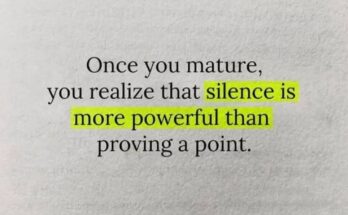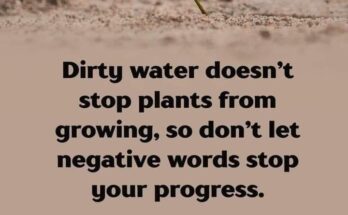In a world brimming with superficial connections and transactional relationships, the notion of a “true friend” has become almost mythical. We live in times where social media gives the illusion of closeness, but emotional depth is often absent. In this shifting social landscape, clinical psychologist and thinker Dr. Jordan B. Peterson has offered some profound insights on the nature of authentic friendship. His lectures, particularly those dealing with personal development and responsibility, often orbit around how crucial it is to choose your friends wisely.
While Peterson’s body of work addresses various elements of friendship, two recurring themes emerge as unmistakable hallmarks of a true friend:
- A true friend genuinely wants the best for you.
- A true friend tells you the truth, even when it’s hard.
These two characteristics serve not only as signposts for identifying real friendship, but also as aspirational traits we ourselves should strive to embody. This essay dives deep into each hallmark, exploring what they mean, why they matter, and how to apply them in our own lives.
1. A True Friend Genuinely Wants the Best for You
At the heart of genuine friendship lies a simple yet profound truth: a true friend rejoices in your successes and supports your growth. Jordan Peterson often emphasizes that a true friend is not someone who merely tolerates your happiness but someone who actively celebrates it.
In his lectures, he notes that many people are surrounded by “friends” who subtly undermine them, feel envy at their achievements, or silently hope for their failure. These pseudo-friendships are predicated on shared misery, not mutual elevation. As Peterson puts it, “If you have a friend whose friendship you wouldn’t recommend to someone else, why do you keep them around?”
The Dark Side of Shared Suffering
Peterson has talked extensively about how some people form alliances based on shared suffering or dysfunction. For instance, two alcoholics may bond over their destructive habits, reinforcing each other’s bad behavior instead of trying to escape the pit they’re in. This might feel like solidarity, but it’s actually a trap—a pact of mutual stagnation.
A true friend, in contrast, would be the one to hand you a ladder rather than climb into the hole with you.
Wanting the Best Means Sacrifice
To genuinely want what’s best for someone often involves personal cost. It might mean enduring jealousy and turning it into admiration. It might mean putting your own needs aside temporarily to help your friend move forward. Jordan Peterson touches on this when he talks about the importance of aligning yourself with people who will not resent you for trying to improve.
For example, imagine you receive a job offer in another city—your dream job. A false friend might try to talk you out of it, subtly guilting you by saying things like, “But what about all the memories we’ve made here?” or “You’ll probably hate it there anyway.” They may not even realize they’re doing it out of fear of being left behind. A true friend, however, would likely say, “That’s incredible—you’ve worked so hard for this. Let’s figure out how to make the most of the time we have left before you go.”
That’s the key: a true friend sees your success as an extension of their own joy.
Pruning Your Social Circle
In 12 Rules for Life, Peterson encourages people to “Make friends with people who want the best for you.” This might sound obvious, but when applied seriously, it demands deep reflection. Who are the people in your life who celebrate your wins without comparison, who push you to grow without pulling you down?
True friends might be few, but quality will always trump quantity. Identifying those who sincerely want your good—not out of selfish interest, but from genuine care—is a critical step toward living a meaningful and resilient life.
2. A True Friend Tells You the Truth, Even When It’s Hard
If the first hallmark of a true friend is support, the second is honesty. And not just the comfortable kind. Jordan Peterson strongly believes that truth is the bedrock of meaningful relationships, and friendship is no exception.
We often surround ourselves with people who tell us what we want to hear. It’s easy, it feels good, and it avoids conflict. But Peterson argues that true friendship requires the courage to speak the truth—even if it risks hurting the other person in the short term.
The Necessity of Confrontation
Peterson warns against passive acceptance and silent resentment in relationships. A real friend won’t allow you to wallow in your delusions or make excuses for your failures. They will challenge you, confront you, and hold you accountable. That doesn’t mean being cruel or judgmental—it means caring enough to say, “You’re better than this.”
In one of his most quoted moments, Peterson says, “Assume that the person you are listening to might know something you don’t.” But the flip side is also true: assume that what you have to say might be hard but necessary.
For example, let’s say your friend is dating someone toxic and refuses to see the red flags. A fake friend might smile and say, “If you’re happy, I’m happy,” because it avoids drama. But a true friend will sit you down and say, “I’ve noticed something about your relationship that worries me. I care about you too much to stay silent.”
That’s not easy. But it’s real.
Honesty as a Form of Respect
Peterson’s insistence on truth is rooted in respect—the belief that others are strong enough to handle reality. When you lie or conceal the truth, you’re essentially saying, “I don’t trust you to handle this.” That’s not kindness. That’s control.
Honest feedback, given with care, is one of the most intimate and courageous gifts a friend can offer. Whether it’s about lifestyle choices, ethical boundaries, or even emotional blind spots, the truth—spoken in love—has the power to transform.
The Mirror of Self-Reflection
Sometimes the truth a friend offers is not about your actions but about your mindset. We all have blind spots, defense mechanisms, and distorted narratives about ourselves. A true friend acts as a mirror—not a distorted funhouse mirror, but a clear, honest one.
Peterson often talks about the danger of living a lie, of crafting a false narrative just to feel safe. A real friend will challenge that illusion. They’ll say, “You say nobody cares about you, but that’s not true—I care. And I’m telling you, you need to stop pushing people away.”
This is how truth in friendship becomes a healing force—not a weapon, but a salve.
Bringing the Two Together
These two hallmarks—wanting the best for you and telling you the truth—are not separate qualities. They work in tandem. A friend who only supports but never challenges may coddle you into stagnation. A friend who only criticizes but doesn’t care may just be a bully in disguise. But a friend who does both? That’s gold.
Imagine someone in your life who celebrates your victories, uplifts your dreams, but also calls you out when you’re veering off track. Someone who says, “I’m proud of you, but I also see something you need to work on.” That’s the kind of friendship Peterson is urging people to seek and to become.
The Courage to Be That Friend
Of course, these insights don’t just apply to spotting others—they challenge us to become that kind of friend too.
Are you the one who shows up only when things are easy? Do you envy your friend’s success silently? Do you avoid uncomfortable conversations because you don’t want to risk tension? Or do you genuinely root for them and speak the truth even when your voice shakes?
Peterson’s philosophy isn’t just about self-protection—it’s about self-responsibility. You don’t attract great friends by accident. You attract them by becoming one.
Friendship, like any meaningful relationship, is a dance of mutual growth. And becoming a person who others can count on, who speaks truth with love and celebrates others without envy, is a journey of character-building.
Why It Matters More Than Ever
In today’s hyper-connected yet emotionally isolated world, the importance of genuine friendships cannot be overstated. We are lonelier than ever, more anxious than ever, and more confused about who we can trust. Jordan Peterson’s timeless wisdom reminds us that the foundation of any meaningful life is built on relationships that demand truth and inspire growth.
Superficial bonds can never carry the weight of real life. When tragedy strikes, when you’re at your lowest, when you’re not making any sense—those are the moments when the truth-tellers and the joy-bringers stand apart.
A true friend will walk with you not only through your triumphs but also through your transformation. And that is what makes them irreplaceable.
Conclusion: Choose—and Be—the Real Deal
So, how do you spot a true friend? According to Jordan Peterson, it boils down to two things: they want what’s best for you, and they’re brave enough to tell you the truth.
These aren’t just markers of good friendships—they’re markers of good people. And they don’t happen by accident. They require courage, humility, emotional maturity, and a deep sense of responsibility—values that Peterson champions at every opportunity.
In the end, we don’t need a thousand acquaintances. We need a few true allies—people who will climb with us, not cling to us. People who will see our light and our shadows and still say, “I’m here for you.”
So be the kind of friend who tells the truth and celebrates growth. And surround yourself with those who do the same.
That’s not just friendship.
That’s transformation.


